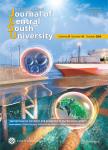Optimization of process parameters to maximize ultimate tensile strength of friction stir welded dissimilar aluminum alloys using response surface methodology
Optimization of process parameters to maximize ultimate tensile strength of friction stir welded dissimilar aluminum alloys using response surface methodology作者机构:Kalaivani College of Technology Coimbatore Institute of Technology
出 版 物:《Journal of Central South University》 (中南大学学报(英文版))
年 卷 期:2013年第20卷第11期
页 面:2929-2938页
核心收录:
学科分类:080903[工学-微电子学与固体电子学] 080503[工学-材料加工工程] 0809[工学-电子科学与技术(可授工学、理学学位)] 08[工学] 080501[工学-材料物理与化学] 0805[工学-材料科学与工程(可授工学、理学学位)] 080502[工学-材料学] 0802[工学-机械工程] 080201[工学-机械制造及其自动化]
主 题:frictions stir welding dissimilar aluminum alloy tool pin profile design of experiments RSM material flow behavior optimization
摘 要:Aluminium alloys generally present low weldability by traditional fusion welding process. Development of the friction stir welding (FSW) has provided an alternative improved way of producing aluminium joints in a faster and reliable manner. The quality of a weld joint is stalwartly influenced by process parameter used during welding. An approach to develop a mathematical model was studied for predicting and optimizing the process parameters of dissimilar aluminum alloy (AA6351 T6-AA5083 Hlll)joints by incorporating the FSW process parameters such as tool pin profile, tool rotational speed welding speed and axial force. The effects of the FSW process parameters on the ultimate tensile strength (UTS) of friction welded dissimilar joints were discussed. Optimization was carried out to maximize the UTS using response surface methodology (RSM) and the identified optimum FSW welding parameters were reported.



